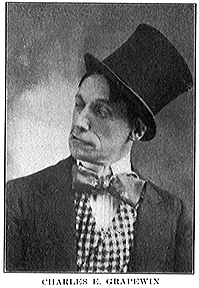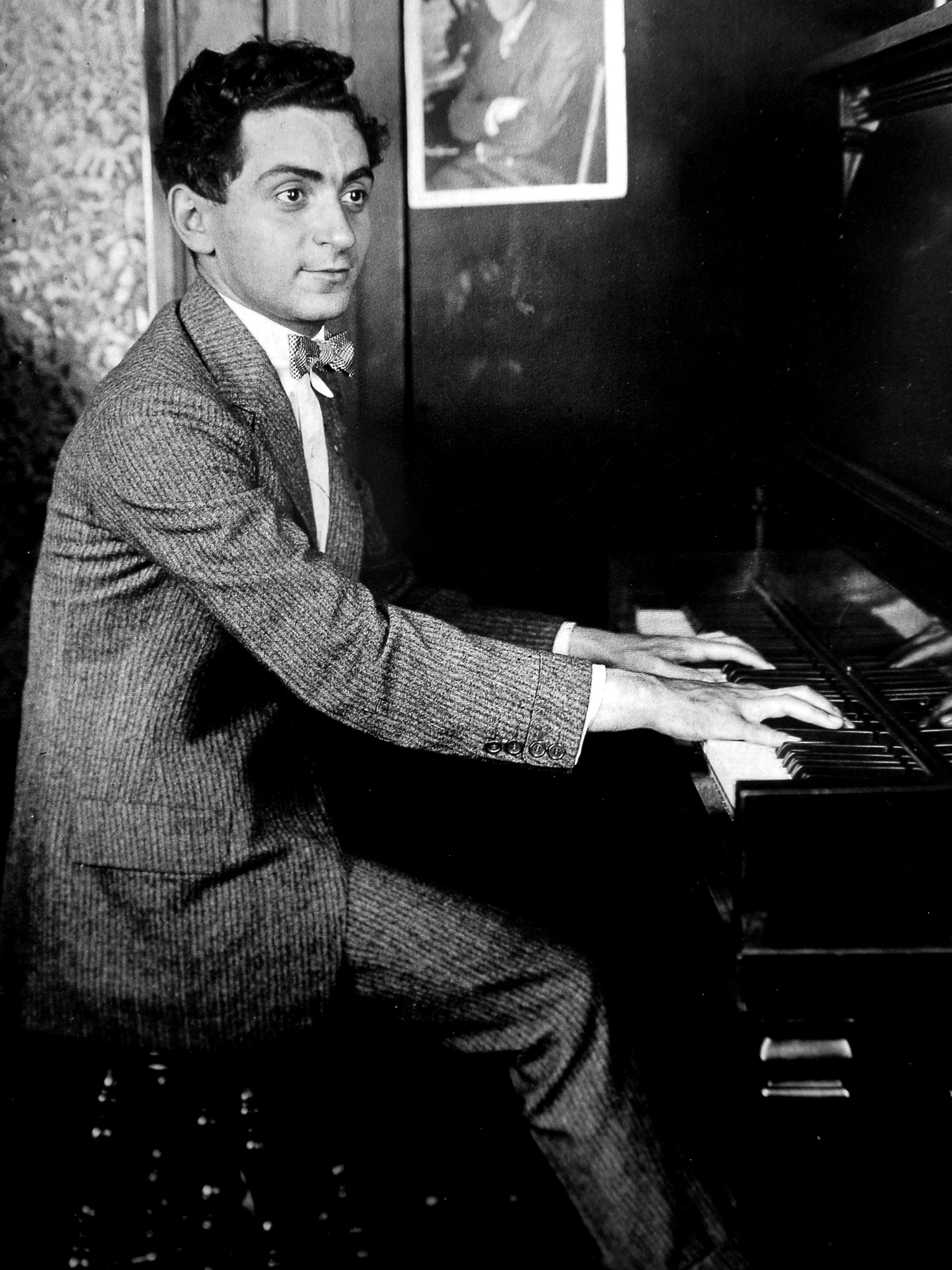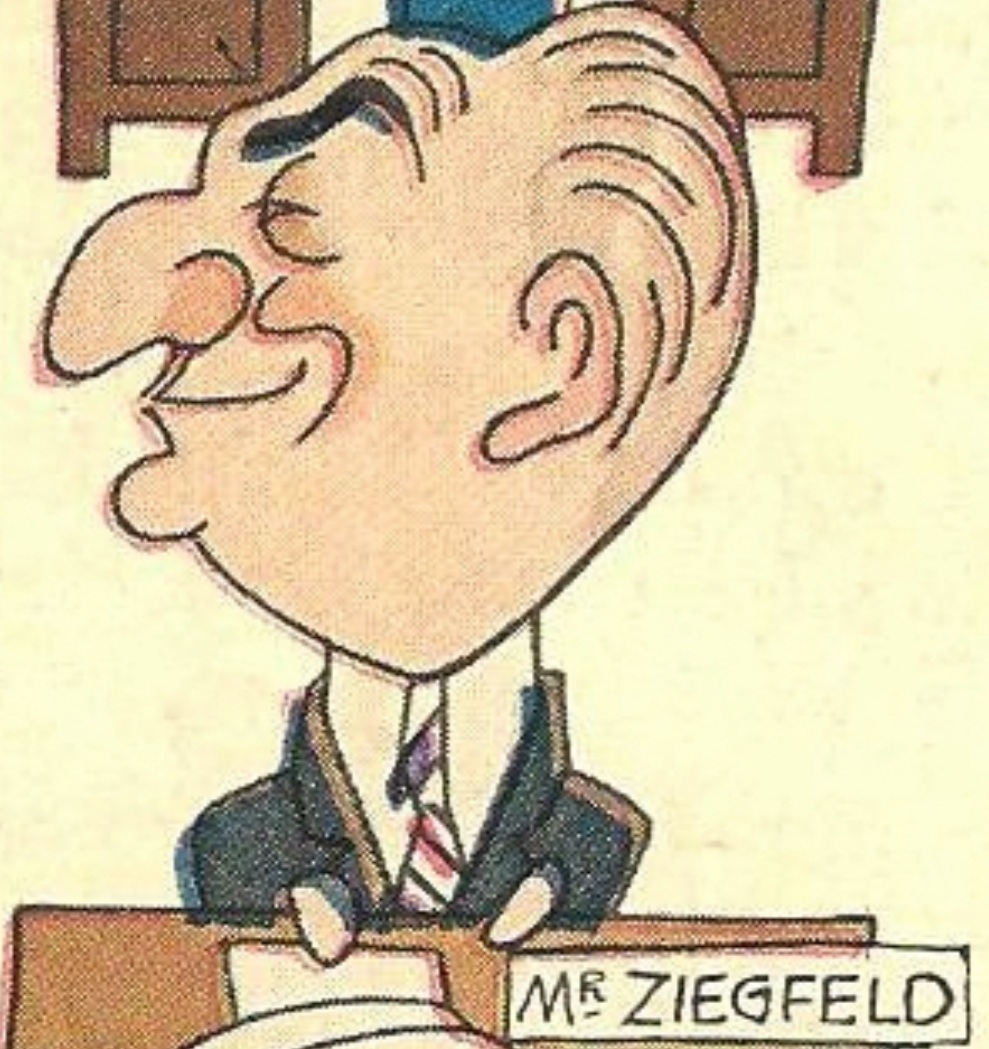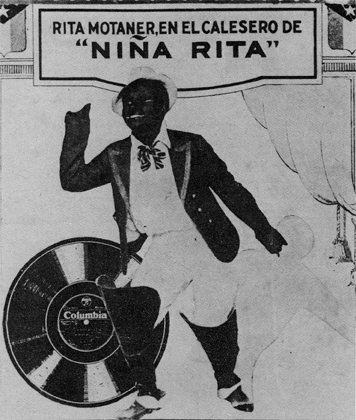|
Very Good Eddie
''Very Good Eddie'' is a musical with a book by Guy Bolton and Philip Bartholomae, music by Jerome Kern, and lyrics by Schuyler Greene, with additional lyrics by Elsie Janis, Herbert Reynolds, Harry B. Smith, John E. Hazzard, Ring Lardner and Jerome Kern, and additional music by Henry Kailimai. The story was based on the farce '' Over Night'' by Bartholomae. The farcical plot concerns three couples and a sex-crazed voice teacher who board a Hudson River Day Line boat in Poughkeepsie, New York. Chaos ensues when two of the couples cross paths and accidentally trade partners. The vaudeville-style adventure continues at a hotel, where guests pop in and out of rooms while an inebriated desk clerk tries to sort through the madness. The show was the second of the series of "Princess Theatre musicals" and was a hit for Bolton and Kern, running for 341 performances and leading to revivals and further successful collaborations. Background Early in the 20th century, American musical the ... [...More Info...] [...Related Items...] OR: [Wikipedia] [Google] [Baidu] |
Jerome Kern
Jerome David Kern (January 27, 1885 – November 11, 1945) was an American composer of musical theatre and popular music. One of the most important American theatre composers of the early 20th century, he wrote more than 700 songs, used in over 100 stage works, including such classics as "Ol' Man River", "Can't Help Lovin' Dat Man", "A Fine Romance (song), A Fine Romance", "Smoke Gets in Your Eyes", "The Song Is You", "All the Things You Are", "The Way You Look Tonight" and "Long Ago (and Far Away)". He collaborated with many of the leading librettists and lyricists of his era, including George Grossmith Jr., Guy Bolton, P. G. Wodehouse, Otto Harbach, Oscar Hammerstein II, Dorothy Fields, Johnny Mercer, Ira Gershwin and Yip Harburg. A native New Yorker, Kern created dozens of Broadway theatre, Broadway musicals and musical films, Hollywood films in a career that lasted for more than four decades. His musical innovations, such as 4/4 dance rhythms and the employment of syncopati ... [...More Info...] [...Related Items...] OR: [Wikipedia] [Google] [Baidu] |
Vaudeville
Vaudeville (; ) is a theatrical genre of variety entertainment which began in France in the middle of the 19th century. A ''vaudeville'' was originally a comedy without psychological or moral intentions, based on a comical situation: a dramatic composition or light poetry, interspersed with songs and dances. Vaudeville became popular in the United States and Canada from the early 1880s until the early 1930s, while changing over time. In some ways analogous to music hall from Victorian Britain, a typical North American vaudeville performance was made up of a series of separate, unrelated acts grouped together on a common bill. Types of acts have included popular and classical musicians, singers, dancers, comedians, trained animals, magicians, ventriloquists, strongmen, female and male impersonators, acrobats, clowns, illustrated songs, jugglers, one-act plays or scenes from plays, athletes, lecturing celebrities, minstrels, and films. A vaudeville performer ... [...More Info...] [...Related Items...] OR: [Wikipedia] [Google] [Baidu] |
Oh, Boy! (musical)
''Oh, Boy!'' is a musical theatre, musical in two acts, with music by Jerome Kern and book and lyrics by Guy Bolton and P. G. Wodehouse. The story concerns befuddled George, who elopes with Lou Ellen, the daughter of Judge Carter. He must win over her parents and his Quaker aunt. His dapper polo champion friend Jim is in love with madcap actress Jackie, but George must hide her while she extricates herself from a scrape with a bumbling constable whom she punched at a party raid. The piece was the most successful of the "Princess Theatre, New York City, Princess Theatre Musicals", opening in February 1917 and transferring to the Casino Theatre (Broadway), Casino Theatre in November 1917 to finish its Broadway theatre, Broadway run of 463 performances. A London production, under the title ''Oh, Joy!'' opened in January 1919 at the Novelty Theatre, Kingsway Theatre, where it ran for 167 performances. A Oh, Boy! (1919 film), silent film version was also produced in 1919. Background Ea ... [...More Info...] [...Related Items...] OR: [Wikipedia] [Google] [Baidu] |
John Kenrick (theatre Writer)
John Kenrick (born October 3, 1959) is an American author, teacher and theatre and film historian. Kenrick is an adjunct teacher of musical theatre history at New York University, Brind School – University of the Arts (Philadelphia) and The New School, and lectures frequently on the subject elsewhere. His 2008 book ''Musical Theatre: A History'' is a comprehensive history of musical theatre from ancient times to the present. Kenrick is the curator of the extensive musical theatre and film website ''Musicals101.com: The Cyber Encyclopedia of Musical Theatre, TV and Film'' Life and career Kenrick was born and raised in Astoria, New York. He attended Monsignor McClancy Memorial High School and then Cathedral College of the Immaculate Conception in Douglaston, New York, studying English and theology.Crimmins, Cathy E. ''How the Homosexuals Saved Civilization'' (2004) Penguin Group (US) In the 1980s and 1990s, Kenrick worked first as a teacher and then in theatrical production ... [...More Info...] [...Related Items...] OR: [Wikipedia] [Google] [Baidu] |
Sigmund Romberg
Sigmund Romberg (July 29, 1887 – November 9, 1951) was a Hungarian-born American composer. He is best known for his Musical theatre, musicals and operettas, particularly ''The Student Prince'' (1924), ''The Desert Song'' (1926) and ''The New Moon'' (1928). Early in his career, Romberg was employed by the Shubert brothers to write music for their musicals and revues, including several vehicles for Al Jolson. For the Shuberts, he also adapted several European operettas for American audiences, including the successful ''Maytime (musical), Maytime'' (1917) and ''Das Dreimäderlhaus, Blossom Time'' (1921). His three hit operettas of the mid-1920s, named above, are in the style of Viennese operetta, but his other works from that time mostly employ the style of American musicals of their eras. He also composed film scores. Biography Early life Romberg was born in Hungary as Siegmund Rosenberg to a Jewish [...More Info...] [...Related Items...] OR: [Wikipedia] [Google] [Baidu] |
Irving Berlin
Irving Berlin (born Israel Isidore Beilin; May 11, 1888 – September 22, 1989) was a Russian-born American composer and songwriter. His music forms a large part of the Great American Songbook. Berlin received numerous honors including an Academy Award, a Grammy Award, and a Tony Award. He also received the Presidential Medal of Freedom from President Gerald R. Ford in 1977. Broadcast journalist Walter Cronkite stated he "helped write the story of this country, capturing the best of who we are and the dreams that shape our lives".Carnegie Hall, May 27, 1988 Irving Berlin's 100th birthday celebration Born in , Berlin arrived in the United States at the age of five. His family l ... [...More Info...] [...Related Items...] OR: [Wikipedia] [Google] [Baidu] |
Florenz Ziegfeld
Florenz Edward Ziegfeld Jr. (; March 21, 1867 – July 22, 1932) was an American Broadway impresario, notable for his series of theatrical revues, the ''Ziegfeld Follies'' (1907–1931), inspired by the '' Folies Bergère'' of Paris. He also produced the musical ''Show Boat''. He was known as the "glorifier of the American girl". Ziegfeld is a member of the American Theater Hall of Fame. Early life Florenz Edward Ziegfeld Jr. was born on March 21, 1867, in Chicago, Illinois. His mother, Rosalie (''née'' de Hez), who was born in Belgium, was the grandniece of General Count Étienne Maurice Gérard. His father, Florenz Edward Ziegfeld, was a German immigrant whose father was the mayor of Jever in Friesland. Ziegfeld was baptized in his mother's Roman Catholic church. His father was Lutheran. As a child Ziegfeld witnessed the Chicago fire of 1871. Career His father ran the Chicago Musical College and later opened a nightclub, the ''Trocadero'', to profit from the 1893 Wor ... [...More Info...] [...Related Items...] OR: [Wikipedia] [Google] [Baidu] |
Revue
A revue is a type of multi-act popular theatre, theatrical entertainment that combines music, dance, and sketch comedy, sketches. The revue has its roots in 19th century popular entertainment and melodrama but grew into a substantial cultural presence of its own during its golden years from 1916 to 1932. Though most famous for their visual spectacle, revues frequently satirized contemporary figures, news or literature. Similar to the related subforms of operetta and musical theatre, the revue art form brings together music, dance and sketches to create a compelling show. In contrast to these, however, revue does not have an overarching storyline. Rather, a general theme serves as the motto for a loosely related series of acts that alternate between solo performances and dance ensembles. Owing to high ticket prices, wikt:ribald, ribald publicity campaigns and the occasional use of wikt:prurient, prurient material, the revue was typically patronized by audience members who earned mo ... [...More Info...] [...Related Items...] OR: [Wikipedia] [Google] [Baidu] |
Victor Herbert
Victor August Herbert (February 1, 1859 – May 26, 1924) was an American composer, Cello, cellist and conducting, conductor of English and Irish ancestry and German training. Although Herbert enjoyed important careers as a cello soloist and conductor, he is best known for composing many successful operettas that premiered on Broadway theatre, Broadway from the 1890s to World War I. He was also prominent among the Tin Pan Alley composers and was later a founder of the American Society of Composers, Authors, and Publishers (ASCAP). A prolific composer, Herbert produced two operas, a cantata, 43 operettas, incidental music to 10 plays, 31 compositions for orchestra, nine band compositions, nine cello compositions, five violin compositions with piano or orchestra, 22 piano compositions and numerous songs, choral compositions and orchestrations of works by other composers, among other music. In the early 1880s, Herbert began a career as a cellist in Vienna and Stuttgart, during whic ... [...More Info...] [...Related Items...] OR: [Wikipedia] [Google] [Baidu] |
Operettas
Operetta is a form of theatre and a genre of light opera. It includes spoken dialogue, songs and including dances. It is lighter than opera in terms of its music, orchestral size, and length of the work. Apart from its shorter length, the operetta is usually of a light and amusing character. The subject matter may portray "lovers' spats, mistaken identities, sudden reversals of fortune, and glittering parties". It sometimes also includes satirical commentaries. "Operetta" is the Italian diminutive of "opera" and was used originally to describe a shorter, perhaps less ambitious work than an opera. Operetta provides an alternative to operatic performances in an accessible form targeting a different audience. Operetta became a recognizable form in the mid-19th century in France, and its popularity led to the development of many national styles of operetta. Distinctive styles emerged across countries including Austria-Hungary, Germany, England, Spain, the Philippines, Mexico, Cuba ... [...More Info...] [...Related Items...] OR: [Wikipedia] [Google] [Baidu] |
George M
''George M!'' is a Broadway theatre, Broadway musical based on the life of George M. Cohan, the biggest Broadway star of his day who was known as "The Man Who Owned Broadway." The book for the musical was written by Michael Stewart (playwright), Michael Stewart, John Pascal, and Francine Pascal. Music and lyrics were by George M. Cohan himself, with revisions for the musical by Cohan's daughter, Mary Cohan. The story covers the period from the late 1880s until 1937 and focuses on Cohan's life and show business career from his early days in vaudeville with his parents and sister to his later success as a Broadway singer, dancer, composer, lyricist, theatre director and theatre producer, producer. The show includes such Cohan hit songs as "Give My Regards To Broadway", "You're a Grand Old Flag", and "Yankee Doodle Dandy." Productions The musical opened on Broadway at the Palace Theatre (New York City), Palace Theatre on April 10, 1968, and closed on April 26, 1969, after 433 pe ... [...More Info...] [...Related Items...] OR: [Wikipedia] [Google] [Baidu] |
The Arcadians (musical)
''The Arcadians'' is an Edwardian musical comedy styled a "Fantastic Musical Play" in three acts with a book by Mark Ambient and Alexander M. Thompson, lyrics by Arthur Wimperis, and music by Lionel Monckton and Howard Talbot. The story concerns some idyllic Arcadians who wish to transform wicked London to a land of truth and simplicity. First produced by Robert Courtneidge, the musical opened at the Shaftesbury Theatre in London, on 29 April 1909, and ran for 809 performances. This was the third longest run for any musical theatre piece up to that time. The production starred Phyllis Dare, Dan Rolyat and Florence Smithson. A Broadway production opened in 1910 and ran for 193 performances. The piece was toured extensively, revived professionally in Britain, and a silent film version was made in 1927. It was popular with amateur theatre groups, particularly in Britain, throughout the 20th century. Recordings of some of its numbers were made in 1909 and 1915 by origina ... [...More Info...] [...Related Items...] OR: [Wikipedia] [Google] [Baidu] |






